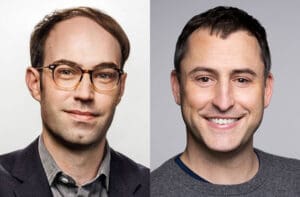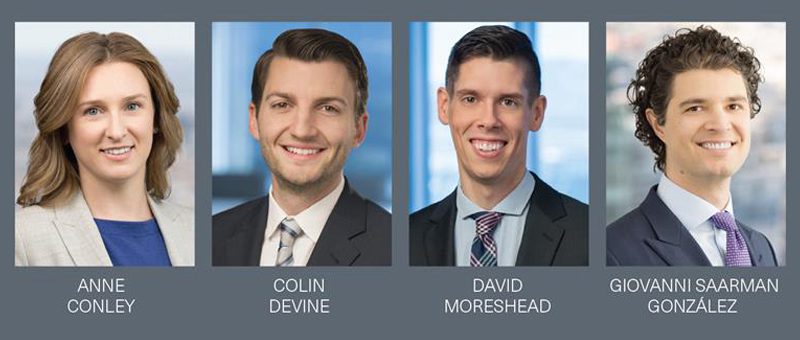
Spring 2025
Alumni Network Newsletter
Stay ConnectedA Welcome Message From Firm Chair, Brad Brian

I am pleased to reconnect with you all through our newest edition of our alumni network newsletter. In this edition, we provide insights and updates from the firm and our alumni community.
Our alumni spotlight interviews share stories of two exceptional alumni who are making a significant impact in our communities. Elisabeth “Liz” Freinberg, chief legal officer and general counsel at LA28 Olympic & Paralympic Games, is committed to making the upcoming Olympics the best the world has ever seen. Christina Moniodis, chief of staff at The Media Trust, shares her diverse career journey in data privacy, media and startups, highlighting the importance of seeking varied experiences for personal and professional growth.
The Alumni Lunch Series continues to be a success. Recently, we had the privilege of hosting two alumni working at investment firms: Jesse King, general counsel at Kleiner Perkins, and Benjamin Schrier, general counsel at Greenoaks. We invite you to tune in virtually to hear from our upcoming speakers.
Since our last newsletter, we have celebrated the achievements of retiring, returning and new MTO attorneys. Peter Detre retired from the firm after 29 years and leaves behind an incredible legacy. We were also fortunate to welcome back E. Martin Estrada as a partner after his tenure as United States Attorney for the Central District of California, and Jeremy Kreisberg who returned as of counsel after serving as senior associate counsel in the White House Counsel’s Office. Andy Garelick joined as a partner to lead the firm’s corporate expansion, and four MTO attorneys were promoted to partner: Anne Conley, Colin Devine, David Moreshead and Giovanni Saarman González.
We end this edition by sharing client successes, and firm wins.
Thank you for continuing to stay engaged and connected.
All the best,
Brad Brian
Firm Chair

Alumni Spotlight
Over the course of their careers, our MTO alumni have collected incredible insights and stories to share. In this series, read interviews from those who have called MTO home throughout the years and contributed to the firm’s rich history.
Interview of
Elisabeth Freinberg
Chief Legal Officer and General Counsel at LA28
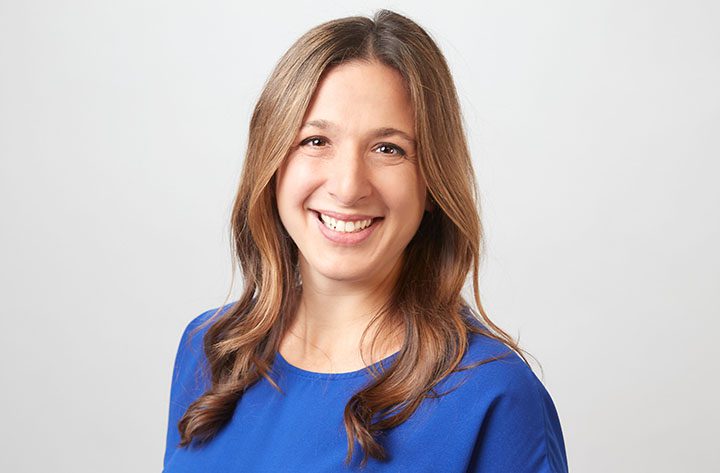
Elisabeth Freinberg was an associate at Munger, Tolles & Olson from 2007 to 2011, when she left for an in-house position at Warner Bros. Entertainment. By the time she departed Warner Bros. a decade later, she was vice president of business and legal affairs. Just over four years ago, Elisabeth was given a once-in-a-career opportunity to serve on the legal team of LA28, the entity responsible for everything to do with the 2028 Olympic and Paralympic Games set to be staged in Los Angeles. As Chief Legal Officer, General Counsel and Corporate Secretary of the LA28 Olympic & Paralympic Games, Elisabeth has a front-row seat to what is expected to be the largest Olympics ever.
MTO Partner Bethany Kristovich, who was a summer associate at MTO with Elisabeth in 2004, interviewed her about her legal career and what we can expect from LA28.
Can you describe your responsibilities as chief legal officer and general counsel at LA28?
I am responsible for the legal functions for both LA28, which is the entity putting on the 2028 Olympic and Paralympic Games, and United States Olympic and Paralympic Properties, the commercial joint venture between LA28 and the U.S. Olympic and Paralympic Committee.
The joint venture is the enterprise responsible for monetizing and licensing all LA28 intellectual property and Team USA assets. So, we do the deals that result in all those great Nike and Ralph Lauren consumer products that you see. On a day-to-day basis, I supervise a group of lawyers who do a lot of the work in-house as well as manage outside counsel who provide legal services across both organizations.
What excites you most about working on the 2028 Olympic and Paralympic Games? Could you also share some of the challenges you’ve encountered?
As a third-generation Angelena, I cannot think of a better way to highlight the place that I’ve called home for almost my entire life and celebrate L.A. than to work on this project.
Also, as a lawyer, the deals — the issues — are complex and nuanced, often of first impression. We’re trying to do something that has never been done before or in this way. I find the work dynamic and challenging.
This is the third time the Olympics has been in Los Angeles — first in 1932 and then in 1984 — but it’s never been of this scope and scale. For the most part, Games in other countries are subsidized by governments. Here, we are fully privately funded. We are a 501(c)(3) nonprofit. We are raising all the money to support this enterprise. It is a billion-dollar company that we’re setting up, and we’re doing it in a very short period of time. And then the day after the Paralympics, we’re going to be winding it down in record time.
We can’t do it alone. We are working with lots of partners in both the public and private sectors. The challenge is ensuring we’re all working in concert as we go forward toward the same outcome and the same goal, which is to put on the best Games that the world has ever seen in a responsible manner.
Everybody has different constituencies and interests, and we must make sure that we are all in lockstep as we move toward delivery. We’re a little over 200 people now, and we’re going to have 4,000-plus full-time employees and tens of thousands of volunteers and contractors. We are going to have plenty of partners in local, state and federal law enforcement and security helping us. When you think about all the people to coordinate and get working together, that is a big challenge. But it’s something that we are really focused on executing with agility.
Prior to your role at LA28, you were at Warner Bros. for a decade. How did that transition come about?
Brian Nelson, who was also a summer associate with me at MTO, was the LA28 chief legal officer and ultimately went on to work in the Biden administration. When he was contemplating leaving LA28, my predecessor was elevated to take over the legal department and they needed somebody to come in and run deals. It seemed like a great opportunity. I connected with Brian and the rest is history.
In what ways did your experience at MTO influence your career and prepare you for your role at LA28?
At MTO, you’re working with some of the smartest lawyers on the planet; they really know how to think and write. My approach to communicating is informed by the people who were my mentors at the firm. Jon Altman, David Dinielli, Glenn Pomerantz, Mark Helm — everybody was wonderful and really pushed and shaped me into a better lawyer.
The other thing that happens at MTO is you get put in the room. You learn how to work with people who are more senior than you when you are a young lawyer. And that experience is invaluable.
You also have served as an adjunct professor at the University of Southern California [USC] Gould School of Law. How has your teaching experience been?
I am currently not teaching — it’s been a little difficult to think about how I can do that and this for the next few years. But I always was drawn to teaching. Throughout my career, I loved working with more junior lawyers or interns and individuals who want to go to law school.
Initially, I was thinking I would teach something related to entertainment law because I was working at Warner Bros. I got a call from USC and they said, “We see you clerked and had a case go up to the Supreme Court. Any chance you would want to teach federal courts?”
I said yes. I have also taught an entertainment law class at USC. But honestly, federal courts is my favorite to teach. It’s always changing. The class keeps me close to the issues. It keeps me engaged with students who are incredibly bright and want to have the dialogue.
When you go in-house, one of the things you sometimes miss is that constant discourse about all the legal issues that we would regularly discuss and debate at the firm. That was something missing for me when I went to practice entertainment law in-house. Teaching allowed me to get back to that.
Could you share some key lessons from your career that you believe are important for others to learn?
Sometimes the opportunities come when you least expect them — you just have to say “yes.” Don’t be scared to make a jump that feels uncomfortable.
Also, in my experience, pro bono is an amazing way to grow and learn. Some of the best experiences I had at the firm, and since I’ve left, have been working on pro bono projects or on a volunteer basis in areas that I’m interested in. If your opportunity to grow is not necessarily in front of you in your day-to-day, you can find it through that work. To me, it made all the difference in giving me confidence and real-world experience.
How do you go about maintaining relationships and connections and building a network?
A lot of it is just about caring to stay in touch and making sure that you do. Be willing to make time to have conversations. People did that for me, and so I tend to pay it forward and never say “no” to an informational conversation. I never say “no” to a coffee.
These days, it might take a little time to get on the calendar, but I will always make time if it’s a friend of a friend or somebody who reaches out where we have a personal connection. If I can’t make the time, I’ll make sure somebody on my team can make the time to meet with them.
Can you give us any previews or teasers about what to expect for LA28?
Watch for our volunteer program, which is going to be huge. There will be opportunities for lawyers to be involved as part of that program. Even if you don’t want to volunteer in a legal capacity, there will be opportunities for people throughout the Los Angeles area to be there on-site and participate in meaningful ways.
Sign up on the portal and know there will be a priority and an emphasis put on volunteers from the Southern California region.
Interview of
Christina Moniodis
Chief of Staff at The Media Trust
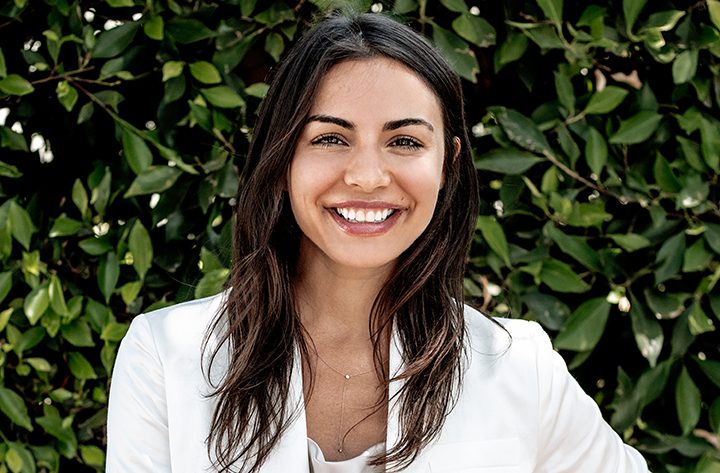
Christina Moniodis practiced corporate law at Munger, Tolles & Olson from 2012 to 2016, before embarking on a unique career path that intersects the media and startup industries. Her previous positions include serving as head of strategy and innovation at HuffPost and Yahoo! News and as vice president of innovation and development at A Starting Point, an app cofounded by actor Chris Evans that collects and distributes video content to help voters understand the issues of the day.
Christina also founded a startup in faith tech that is backed by Antler and the Balaji Fund. The startup, Kord, is currently partnered with the largest Greek Orthodox churches in the country and has been featured by The Washington Post. Christina is now chief of staff for The Media Trust, a technology company that provides digital trust and safety solutions for commerce media, digital publishers, adtech platforms, app developers and advertisers.
MTO Associate April Hu interviewed Christina about her career.
What led you to law school and then the different work experiences you’ve had since then?
Law school is the one thing in my life that happened to me. Everything else feels as though I have battled fate and demanded reality to be different. But law school really fell into place. With the encouragement of some of my peers and my father, I took the LSAT. And then after that, schools reached out and I was able to get a scholarship.
I had very little clarity about what I was going to do within law, and I think that’s partly why my career has been so varied. I’m not certain if I ever really achieved that clarity — I just continue to explore and try different things.
When you were at Yale Law School, you wrote some pieces about data privacy. Was that an interest you had going into law school or was that something you developed while you were there?
It’s interesting how things from your youth can impact you. My favorite book of all time is “1984,” and privacy has always been my top interest. When I was in law school, there was a case that came out that was the third case ever on informational privacy rights in front of the Supreme Court. I realized that it was an opportune time to look at the litigation so far. So that’s what I wrote my note on. Fast-forward and it’s one of the biggest issues of our time.
I ended up being cited by the Supreme Court of India and, recently, the Supreme Court of Jamaica. It’s been in a few textbooks, and it’s great that I was able to have that impact before I began focusing on other, related issues. Within the First Amendment, I’ve been working in media and I have a startup in religious tech. Although I haven’t been focused on data privacy so squarely since that publication, I think I’ve been circling it. Now I’m at a cybersecurity company dealing with privacy issues.
The Media Trust offers different services to clients, including content moderation, which has become a hot-button issue. What are some of the challenges that you see with content moderation?
E-commerce platforms, ad exchanges, cloud infrastructure, etc. — these are legitimate networks that can host illegal content, such as malvertising and scams. There’s a significant focus on just fulfilling what’s required from a strict compliance perspective such that companies aren’t doing nearly as much as they could to police illegal content that exists on their own networks.
A huge challenge is just moving the needle because the internet is a vast place and there is so much crime. We don’t need to spend billions of dollars on new technology — the tools are already there — but we do need the right industry coordination and incentives.
As chief of staff, what does your typical day look like?
The chief of staff role can really vary across companies. It can range from being an executive assistant to acting as a chief operating officer. But it commonly feels like both. Sometimes I’m planning events and other times I’m completely revamping the company’s road map. What I cherish most is that it’s a diverse job — no day is the same. Part of it is just being the shepherd of an organization: There can be a significant restructuring or a skunkworks project, and it needs to be sliced into these different pieces and everyone kept on target.
I’ve always had a chief of staff role that dipped into the innovation side of things. My first chief of staff role was at The Huffington Post, and that was owned by AOL, which was in turn owned by Verizon.
We formed a news division that held the assets of The Huffington Post, Yahoo! News and AOL.
I became chief of staff and then head of strategy over that vertical. If you have your finger on the pulse of the company and the industry and you’re doing that for a couple years, you get insights that are not accessible via some industry report. My favorite part of the job is being able to see white space in the industry or in your own organization and attack that.
Can you tell us some of the challenges and rewards you’ve experienced working with startups?
What’s surprising about the startup space is that, while it’s a field where all these things I mentioned about creativity and risk taking are so essential — and the industry is, in fact, defined by those qualities — somehow the industry is also its own set of conformists. There are mythical investors and founders, and it seems as though most players are just trying to mimic their playbooks. But if you look at the most famous ones in recent years, it seems more than a few are in prison.
So, even in the startup world, you have to be prepared. You can try to study the industry as much as possible, but you still need to just craft your own way.
How did your experience at MTO help you develop your skills to prepare for this varied work?
One of your alumni lunch speakers, Michael O’Sullivan, who I overlapped with at MTO, said that he warns new attorneys to be aware of the “tyranny of expertise” and advises them to go and get a diverse set of experiences in different fields. I love that perspective, and MTO truly does set you up for that. I will explain why, but I also want to warn that such a path of not pursuing the tyranny of expertise requires serious stamina because you are constantly rebuilding and learning.
I remember looking at partners on the transactional side, whom I thought could execute deals with their eyes closed, and feeling envious because it’s their bread and butter and they know precisely what to do, and it also creates a more stable career. But if you’re going to be this explorer of different fields — I imagine Polynesian voyagers, for example, navigating different paths — it’s not linear. You have your ups and downs in your career. Whereas if you’re in a law firm, there’s a graduated structure for your compensation and you work your way up and then become counsel or a partner. But if you’re going to trust yourself to try new things, sometimes you must start and learn again, and you can’t just keep moving around laterally. That part is tough, but it can pay off in a phenomenally rewarding way if you can piece all those parts together and form a beautiful mosaic.
To answer your question directly about how MTO set me up for that, I had amazing mentors.
One was Brett Rodda, who told me during my first week at MTO that, with our one-to-one ratio, as an associate I was the quarterback who called the plays. It was as though the partners were the coaches and we, as associates, were running the show. That is definitely what the chief of staff does: No one is telling you what to do and it’s your job to keep everyone on track.
Another mentor, David Lee, said it was his job to prepare me for my future career, whether it was inside MTO or outside. I was honored that he took that responsibility. None of his deals were cookie-cutter — MTO’s known for that generally — but it was constant custom drafting. The job was new. It was the unforeseen and being able to feel as though you could draft anything.
Sandra Seville Jones was an amazing mentor, and what really influenced me was her commitment to fairness and never jumping on a bandwagon. You could count on her to think in a way that was true to her ideals, no matter what the forces were.
And of course, Ron Olson allows very junior associates on deals with him. He lets you choose your own adventure and craft an approach for the deal. He is such a strong attorney that he can work with whatever approach you put out there as long as you craft it to meet the client’s ultimate need. It really shows how intellectual creativity can always win the day.
But it really can feel as though your career is this piece of art that only you can create because you’re stitching together parts of your life. And if you have a diverse career path, it’s unlikely anyone else has an identical one.

Alumni Lunch Series
This series features alumni who share their inspiring stories, insights and MTO history with our community. Our goal is to provide valuable knowledge to help fulfill your educational needs, with some talks eligible for California MCLE credit. We’re excited to share a recap of our most recent alumni speakers.

Newly Retired Partner
We are proud to celebrate our recently retired partner. His dedication to MTO and the legal community will continue to influence and inspire us for years to come.
Peter Detre
Retired December 2024
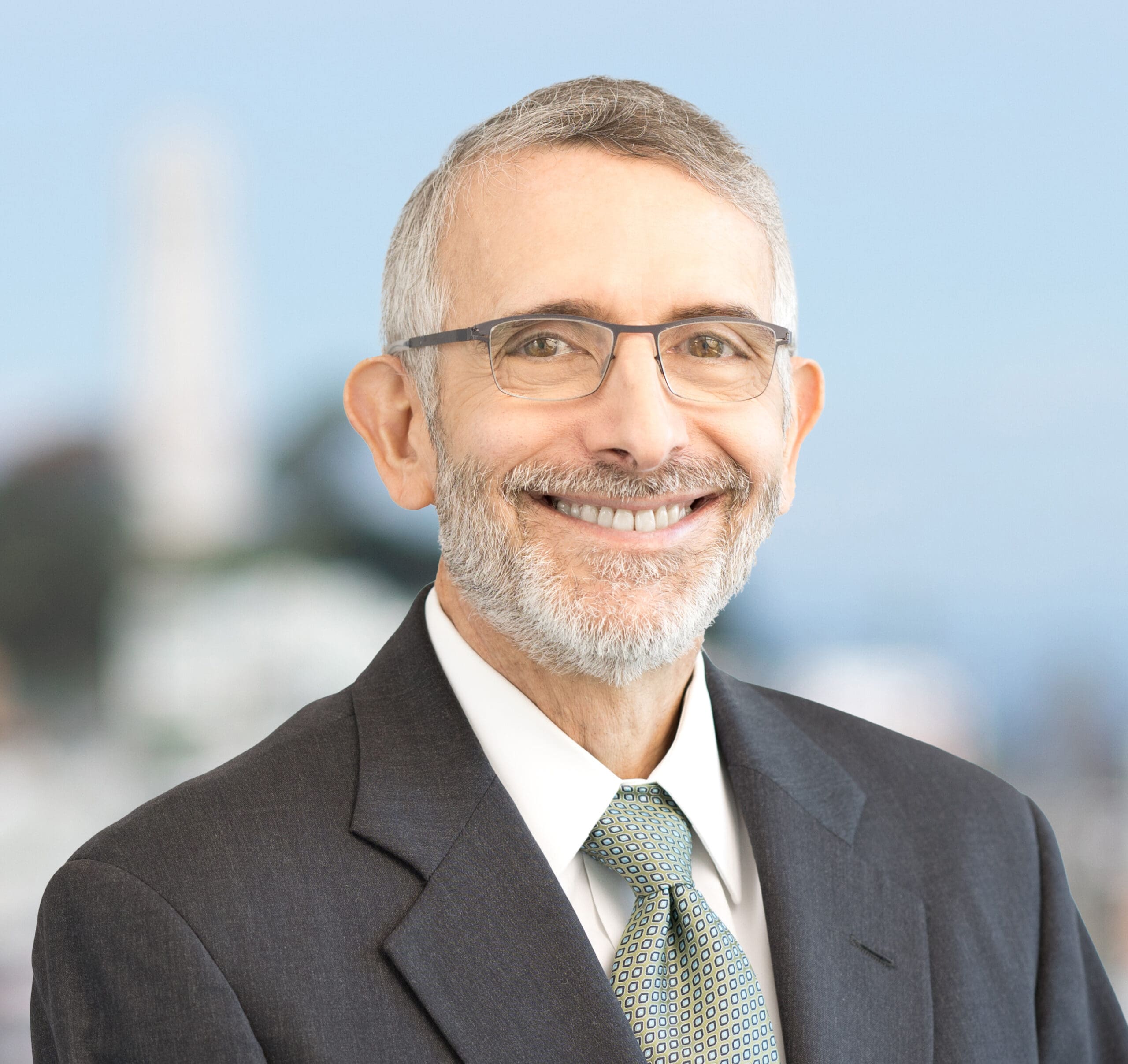
We are honored to celebrate the remarkable career of retired partner Peter Detre. Peter was at the firm for 29 years, and his practice focused on complex civil litigation with a particular emphasis on patent litigation. Over the years, he represented patentees and accused infringers in cases involving a wide range of technologies.
Before practicing law, Peter earned his Ph.D. in mathematics from UC Berkeley and was an assistant professor for three years. He then received his J.D. from Yale Law School, where he was a senior editor of the Yale Law Journal. Following law school, Peter served as a law clerk to the Honorable Kimba M. Wood of the U.S. District Court for the Southern District of New York.
Peter’s dedication, expertise and contributions to the legal community have left an indelible mark on our firm. We wish him all the best in his retirement and look forward to seeing the new adventures he will embark on.

Returned to MTO
Two esteemed attorneys have returned to MTO following years of distinguished service in the federal government. Their experience and dedication to public service have further refined their skills, and we are excited to see the positive impact they will bring to our firm.
E. Martin Estrada
MTO Partner
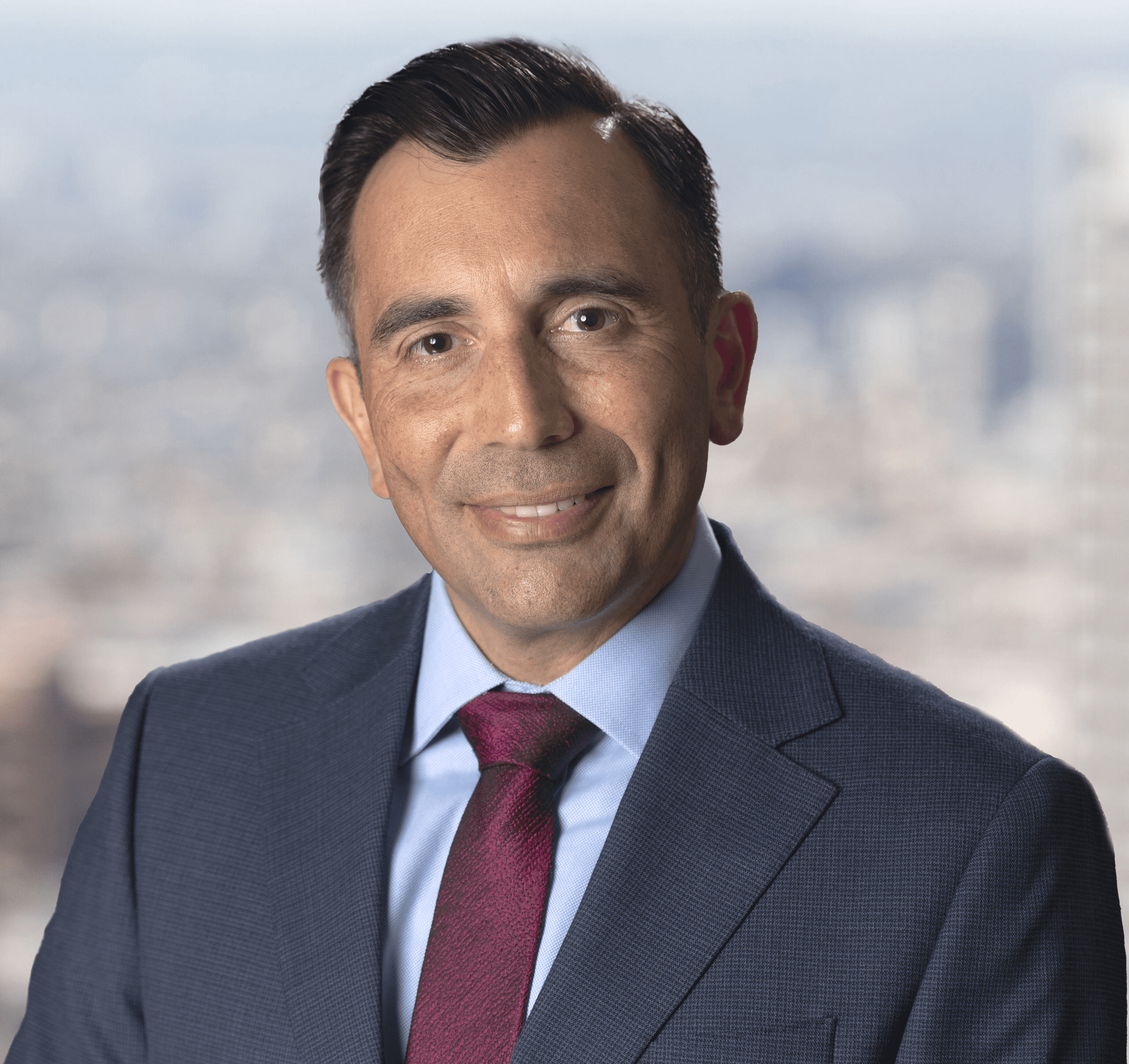
E. Martin Estrada returned to the firm as a partner in our Los Angeles office. Martin served as United States Attorney for the Central District of California from 2022-2025, during which time he led a team of over 550 attorneys and staff in protecting the public across the country’s largest judicial district with almost 20 million people.
A Fellow of the American College of Trial Lawyers, Martin’s practice focuses on trials and investigations, representing major corporations, institutions and prominent individuals in their most significant and sensitive matters. He has repeatedly been recognized for his excellence in advocacy; he has been named one of the Top 100 Lawyers in California by the Daily Journal, is a two-time recipient of the California Lawyer Attorney of the Year (CLAY) award, and has received awards from the Federal Bar Association, the Minority Corporate Counsel Association and the Daily Journal. Read full story.
Jeremy Kreisberg
Of Counsel
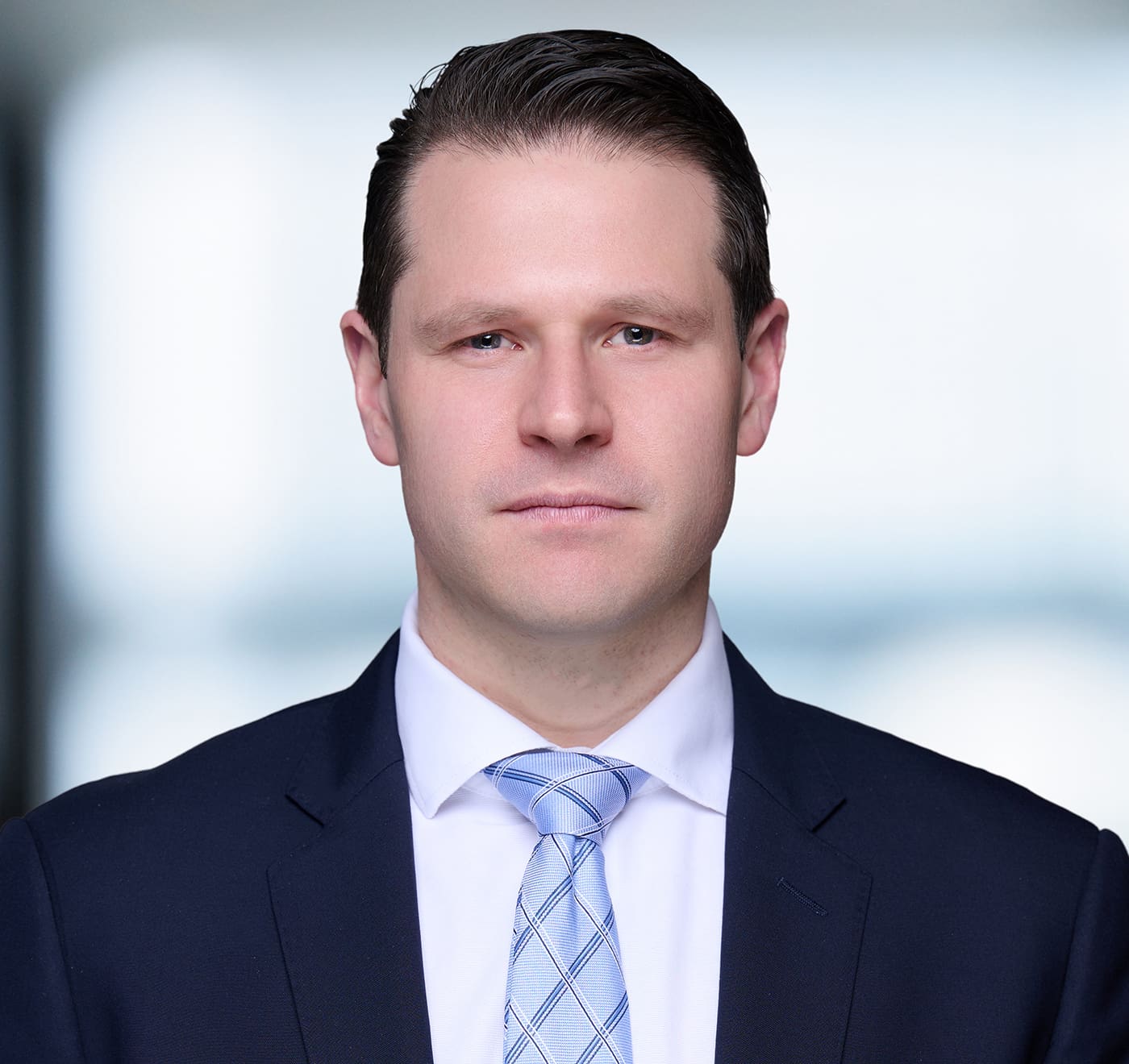
Jeremy Kreisberg returned to the firm as of counsel in our Washington, D.C. office.
Jeremy has held several prominent government positions since 2021, most recently as special assistant to the president and senior associate counsel in the White House Counsel’s Office. In this role, he provided legal advice to domestic policymakers at the White House on health care and immigration policies, liaised with the U.S. Department of Justice on civil litigation challenging administration priorities and provided counsel on legal challenges concerning the administration’s engagements with social media companies. Prior to that, he served as senior advisor to the general counsel at the U.S. Department of the Treasury, advising on significant litigation matters and tax law. Read full story.

New MTO Partners
We are excited to announce the addition of five new partners to MTO’s partnership. Their diverse experience and commitment to excellence will strengthen the firm and enhance our ability to serve our clients.
Andy Garelick
New Corporate Partner
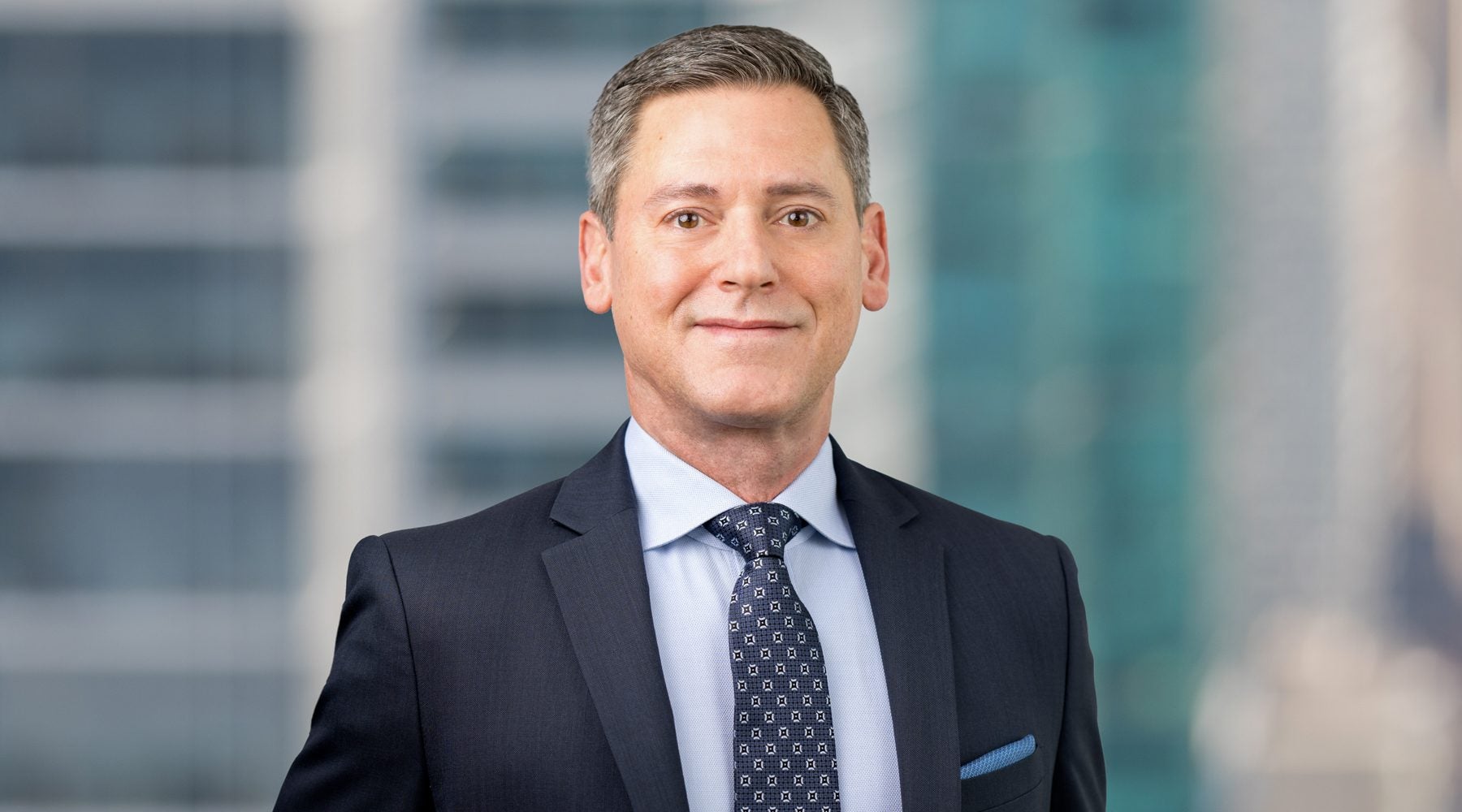
Andy Garelick, a nationally recognized corporate attorney with decades of experience, has joined the firm as a partner in our Los Angeles office. In his new role, Andy will lead the expansion of MTO’s corporate practice.
Andy specializes in mergers and acquisitions and regularly counsels clients on complex corporate governance matters, including extensive experience advising boards and special committees of public companies. He is ranked in Chambers USA and consistently named a top lawyer by IFLR1000, The Best Lawyers in America and Lawdragon’s 500 Leading Dealmakers in America.
Andy’s arrival underscores MTO’s continued focus on solving its clients’ most complicated legal challenges, including by strengthening its corporate practice with top-tier attorneys capable of executing a broad range of sophisticated transactions. Read full story.

News & Insights
Firm News & Achievements
We are delighted to share some of MTO’s recent client successes and accolades for the important work that we do in the courtroom and community.
